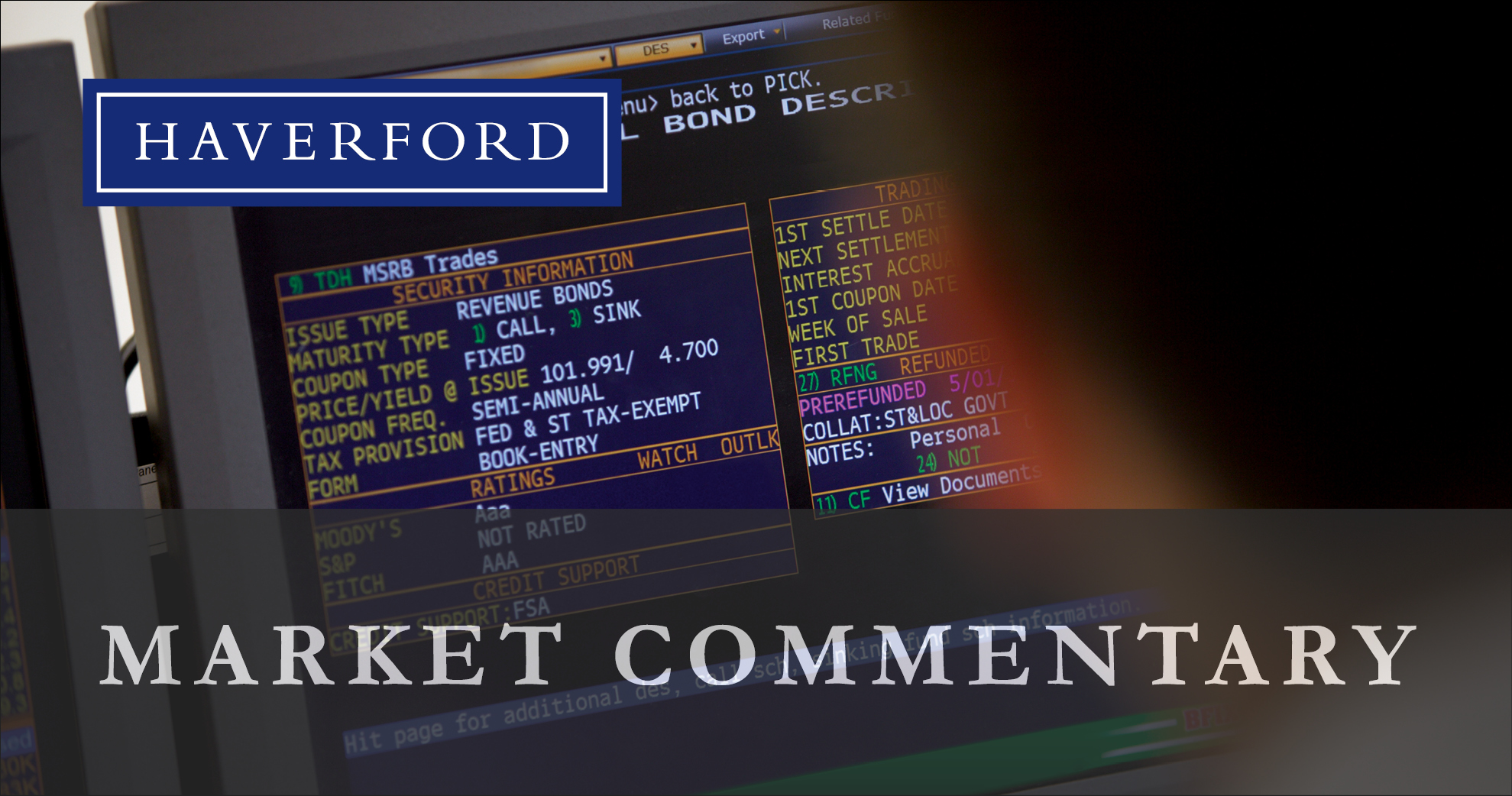Tim Hoyle, CFA, Chief Investment Officer
thoyle@haverfordquality.com
Last week we posited five market-critical questions, the answers to which we thought we would gain some insight during the last week of January. For the most part, the news flow was relatively positive, but that didn’t matter in the face of the GameStop (GME) / Robinhood1 drama. While we don’t want to ignore the implications of this saga, we don’t have much to add to the dialogue. Markets have been on a one-way train higher since October, and the GME debacle is as good a reason as any to commence a pull-back.
Despite GameStop sucking all the oxygen out of the room, we did, in fact, gain clarity on many more important issues during the week. As expected, inflation has crept higher, and the Fed will likely not deviate course in 2021. GDP was a little light, but nothing changes in terms of stimulus talks. Earnings look to be very strong, and JNJ’s vaccine is good enough to make a huge difference in the pace of vaccinations.
On the Fed: The committee’s press release noted that the pace of the recovery has moderated in recent months and that the path of economy, and subsequent Fed action will be based on the progress of vaccinations. Any second half inflation will be viewed as transitory, and according to Chairman Powell, it is too early to discuss tapering to the Fed’s asset purchase programs. It is safe to assume that the Fed continues to conduct $120 billion of monthly asset purchases through at least year-end.
On Earnings: 185 S&P 500 companies have reported 4th quarter results. According to FactSet Earnings Insight, 82% have reported a positive EPS surprise and 76% have reported a positive revenue surprise. Most importantly, positive corporate commentary has led analysts to increase their expectation for future earnings. In typical years, forward earnings expectations often drop by close to 10% over a 12-month period. Historically, the only time that had not been the case is following a recession. Despite knowing this, you can count us among those surprised by the resiliency of corporate earnings. Adam Crisafulli at Vital Knowledge now believes 2022 EPS will be approximately $205. We anticipate 2020 earnings at $138 and 2021 at $170.
On GDP: 4Q U.S. real GDP slightly missed expectations, though it did increase +4.0% quarter over quarter. Despite this recovery, GDP remains 2.5% below pre-pandemic levels. To compare, in the 2008/09 period, GDP fell by 4% from peak to trough and didn’t recover to pre-recession levels for 3 years.
On Inflation: Prices came in ahead of expectations. Core PCE (Personal Consumption Expenditures) increased 1.5% year-over-year. From Jay Powell to your local barber, we all expect inflation to rise and know the Fed wants to see average inflation of 2%, but as Haverford’s Senior Economic Advisor Ed Boehne says, inflation is not a thermostat you can just dial in with precision and expect it to stay there.
On JNJ’s Vaccine: Johnson & Johnson’s vaccine data may have been underwhelming compared to the benchmark set by Pfizer, BioNTech, and Moderna, but the company’s entrance into the fight will likely be a game-changer. The FDA still needs to review the company’s findings, but chances are extremely high that, by the end of February, consumers will have access to another vaccine option. “A vaccine that’s inexpensive, that’s a single dose, and that has no cold chain requirements — that’s pretty good,” Anthony Fauci told CNN of Friday.
